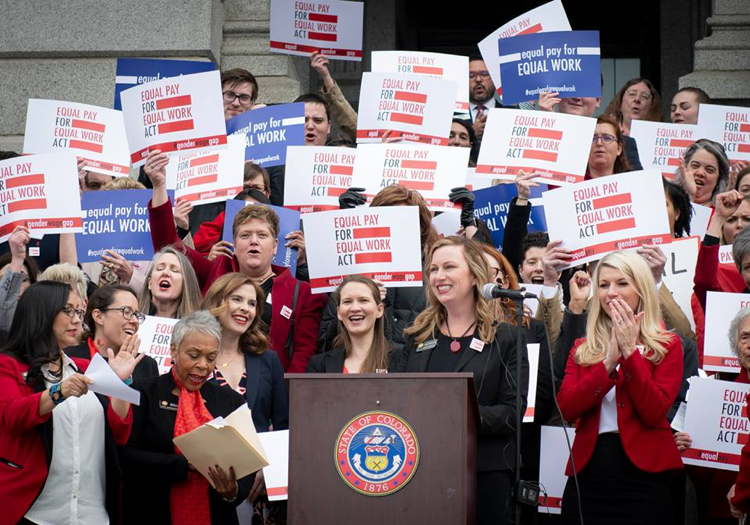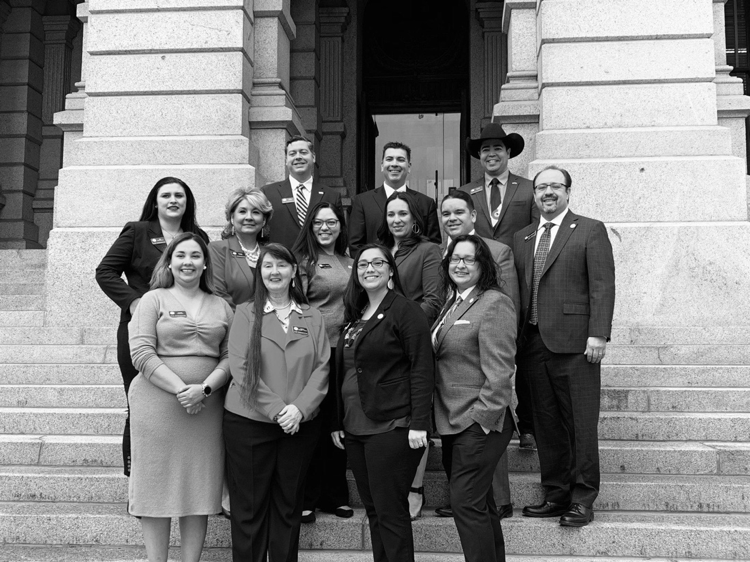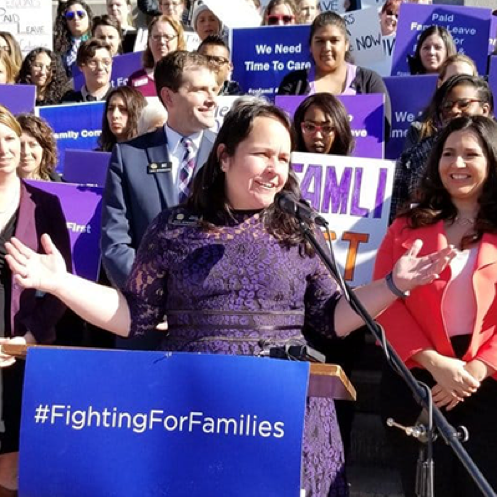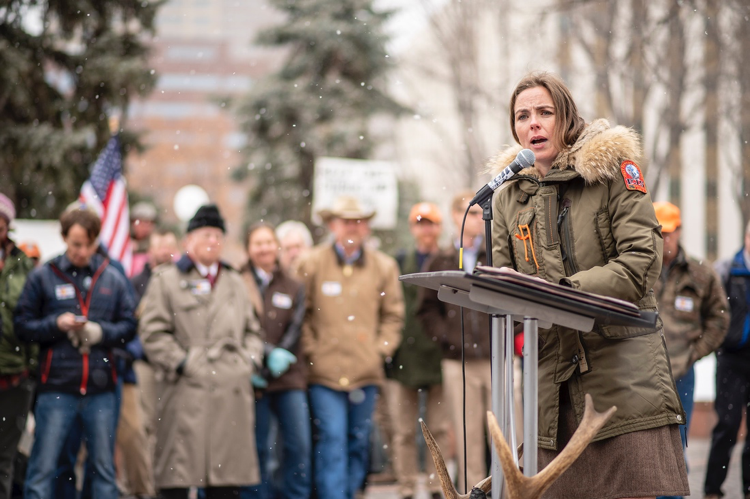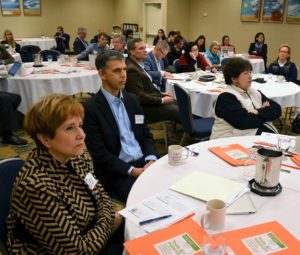Arizona State Representative Athena Salman is making global news with her efforts to secure access to an unlimited, free supply of feminine hygiene products for the state’s incarcerated women, who are currently limited to 12 sanitary pads per month. Rep. Salman’s work on this was inspired in part by similar efforts in Colorado in 2017, led by Colorado State Representative Leslie Herod. SiX spoke to Rep. Salman and Rep. Herod about these efforts to address the dignity that incarcerated women deserve.
SiX: Tell us about Arizona House Bill 2222 and how it inspired a recent policy change from the Department of Corrections.
AZ Rep. Athena Salman: Today, there are nearly 1.3 million women in the U.S Correctional System. Women are the fastest growing prison demographic in our country and in Arizona, we have roughly 4,000 women in state prison. My bill, HB2222, aimed to guarantee unlimited feminine hygiene products free of charge for incarcerated women.
At the time of the bill’s introduction, women in state prison were only receiving 12 pads a month and would have to buy additional menstrual products at the store once they were out. Women in prison make 15 cents an hour and a box of tampons at the store costs $3.99. Women were literally being faced with having to choose between buying more menstrual products or paying for phone calls to their children.
At the committee hearing, the Warden of the Perryville Prison (our only female facility) testified that the bill was “a solution looking for a problem.” Following her testimony, former female inmates told their powerful personal stories that brought to light the many abuses they had endured while being incarcerated. State, national and even international outrage and media coverage ensued, driven by the trending social media hashtag #LetItFlow.
The committee hearing for the bill sparked a movement and that momentum forced an immediate policy change from the Department of Corrections. Now, women will receive 36 pads a month. Last week, the Department announced that it will also be revising its policy to include tampons. While the policy changes are a huge short-term victory, the danger that we see is that correctional departments across the country could then use this as a foundation for fighting against codifying the policy into statute. We know that internal rule changes do not hold the same teeth as state statute and nothing prevents the department from changing the policy back a year later or under new leadership. So, the debate still continues in Arizona and beyond.
What inspired you to work on this issue?
Rep. Salman: At a conference last summer, Colorado State Rep. Leslie Herod informed me that she had just fought for free tampons for women in Colorado prisons. I was shocked that this was being denied to women in the first place, and when I began asking questions at home, I learned that the same problem existed in Arizona. I spoke with attorneys who monitored our prisons, prison reform advocates and formerly incarcerated women and felt absolutely certain that this was an issue worth tackling head on.
Why do you think this bill has resonated so deeply with people across Arizona and beyond?
Rep. Salman: This issue resonated far and wide because it speaks to the fundamental dignity of being a woman. To deny a woman of adequate feminine hygiene products for her menstrual cycle is cruel, and as women, we can empathize with how awful that must be to face that as your daily reality.
What else would you like readers from other states to know?
Rep. Salman: In fighting to make change, it was critical that I had a broad coalition of stakeholders and activists fighting for this issue publicly, and media attention as well. Anyone interested in prison reform, I encourage you to reach out to #cut50. It’s a national network that exclusively specializes on these issues.
Colorado State Representative Leslie Herod, what challenges did you face in pushing this policy in Colorado in 2017?
CO Rep. Leslie Herod: First and foremost, it was difficult to get the Colorado Department of Corrections to take the issue seriously. While I found it personally abhorrent that women had to “prove a medical need” before receiving additional pads, the DOC thought that was a perfectly rational policy. Additionally, the requirement that women pay $8 for a box of tampons while only making less than $1 or $2 a day was equally astonishing.
Men, who of course make up the majority of the legislature and upper leadership within in the Department of Corrections, simply feel unconformable discussing women's “issues” while at the same time, deciding on policies that impact women. That must change.
To be fair, I did get support from male colleagues and Governor Hickenlooper, but I know they wouldn't have raised the issue if I hadn’t. And I’m sure it wouldn’t have made it through the process without the support of the lone female Joint Budget Committee member, Rep. Millie Hamner, or our Latina Speaker of the House Crisanta Duran.
Why is it important for legislators to connect over state lines about issues that they care about?
Rep. Herod: We have a lot to learn from each other. There is no reason to recreate the wheel every time on every issue. We can support each other, offer lessons learned and help elevate each other’s messages on social media. The wealth of knowledge that we share is powerful and can certainly translate across state lines. Also, on many issues, states don't want to be the first out of the gate. It's helpful to know others are doing the same thing or contemplating it.
What has the outcome been in Colorado since funding this program?
Rep. Herod: The program has been a huge success! I have since visited women in Colorado’s Women’s Correctional Facility and they cite the change as one of the biggest examples of positive change during their time in Corrections. They felt like they had been listened to and were afforded a bit more dignity. The warden even thanked me because he says that it has led to more positive interactions with the inmates. Most importantly, there have been ZERO negative reported incidences as a result of this change.
What else would you like readers from other states to know?
Rep. Herod: I really saw this as a humanity issue. I simply couldn't imagine how women were either going without proper hygiene products or having to make the case to a guard (often male) for those products. It seemed so obvious to me. And, ultimately, it costs the Department of Corrections $40,000 a year, which is a mere pittance of its close to $1 billion budget. It was time for change and I was happy to lead the charge.
Follow Reps. Salman and Herod on Facebook and twitter for more updates on their work.
Facebook: @LeslieforColorado @SalmanforAZ
Twitter: @leslieherod @AthenaSalman
